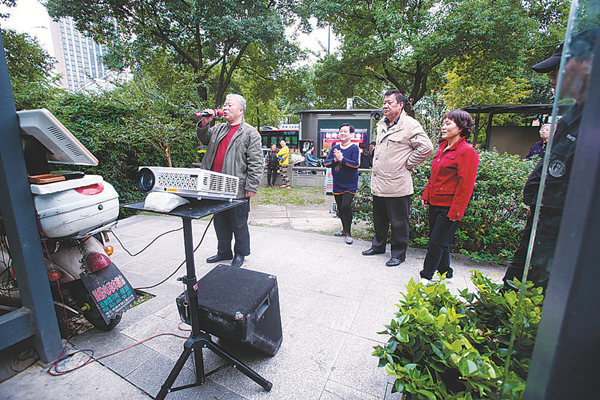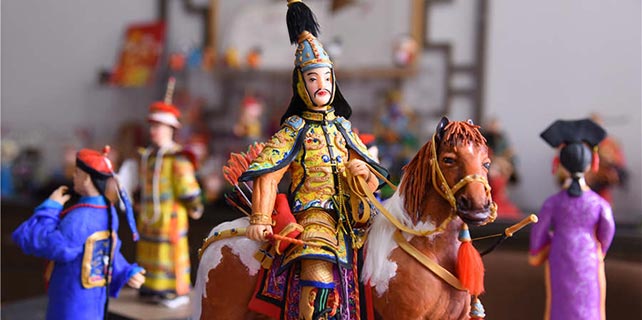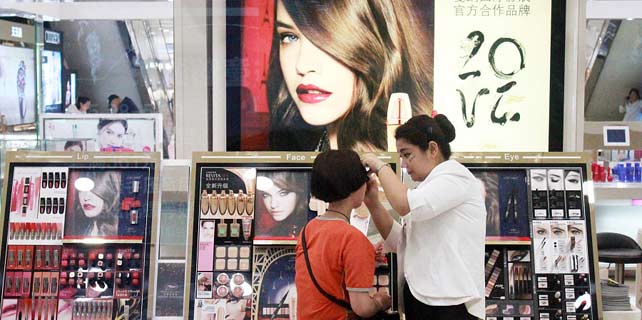Karaoke joints out to woo the elderly
 |
|
Elderly people and those with a tight budget often use makeshift devices to sing outdoors. |
Although Luo Genrong has always enjoyed singing, going to a karaoke parlor has never been an option for a budget-conscious retiree such as himself.
But that has recently changed as KTV establishments have started to roll out promotions to entice the city's senior citizens.
Haoledi, one of the biggest KTV chain stores in the nation, has been offering discounts to customers who are aged over 50. It also has a 200-yuan ($30.2) card that is exclusive to its senior customers. For this amount, customers get to sing for about 12 hours in one of the small- or medium-sized private rooms.
"We are almost operating at a loss during the day on weekdays," said Zhang Hua, the manager of the Haoledi Shanghai flagship facility. "Having a few elderly people come in the afternoons is better than having no one at all, especially during these times when the entire KTV industry is not very profitable."
Over at Windsor KTV, which is located in Shanghai's downtown Huangpu district, elderly customers aged 50 and above get to enjoy preferential rates. The establishment's manager Zhang Jianjun said that senior citizens can book a large room for 12 people for the entire day for just 198 yuan.
The karaoke industry in China started to boom in the late 1980s. Some of the notable players then were Cashbox Party KTV, which was established in 1989. Later in 2000, Melody KTV entered the fray and introduced the concept of combining singing, dining and entertainment in a clean and safe environment.
During the peak of the karaoke craze in Shanghai in the early 2000s, a private room that could accommodate six to 10 customers could cost up to 1,000 yuan per hour, an exorbitant amount during those times.
The situation today, however, is starkly different. Business at karaoke joints have dipped over the past few years, partly because of the government crackdown on the use of public funds for entertainment purposes, and partly because the youth of today have access to a greater variety of entertainment options.
"Karaoke is just not trendy among the young any more," said Zhang Hua, who added that almost 80 percent of the customers during the day are made up of retirees.
To Luo, who patronizes Windsor KTV with his friends at least twice a month now, the KTV is the perfect place to spend the day. After all, the elderly get a clean, private room that shelters them from the elements, and they are even allowed to bring their own food and drinks.
"We believe that singing is beneficial for health. It's good for the heart and lungs," said the 68-year-old.
heqi@chinadaily.com.cn
















